In multiple countries' curriculum, social studies is the integrated study of multiple fields of humanities, the arts, and social sciences, including history, economics, geography and political science. The term was first coined by American educators around the turn of the twentieth century as a catch-all for these subjects, as well as others which did not fit into the helps the models of lower education in the United States, such as philosophy and psychology. One of the purposes of social studies, particularly at the level of higher education, is to integrate several disciplines, with their unique methodologies and special focuses of concentration, into a coherent field of subject areas that communicate with each other by sharing different academic "tools" and perspectives for deeper analysis of social problems and issues. Social studies aims to train students for informed, responsible participation in a diverse democratic society. The content of social studies provides the necessary background knowledge in order to develop values and reasoned opinions, and the objective of the field is civic competence. A related term is humanities, arts, and social sciences, abbreviated HASS.

Lawrence Henry Summers is an American economist who served as the 71st United States Secretary of the Treasury from 1999 to 2001 and as director of the National Economic Council from 2009 to 2010. He also served as president of Harvard University from 2001 to 2006, where he is the Charles W. Eliot University Professor and director of the Mossavar-Rahmani Center for Business and Government at Harvard Kennedy School. In November 2023, Summers joined the board of directors of artificial general intelligence company OpenAI.
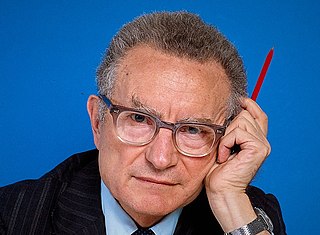
Paul Anthony Samuelson was an American economist who was the first American to win the Nobel Memorial Prize in Economic Sciences. When awarding the prize in 1970, the Swedish Royal Academies stated that he "has done more than any other contemporary economist to raise the level of scientific analysis in economic theory". Economic historian Randall E. Parker has called him the "Father of Modern Economics", and The New York Times considers him to be the "foremost academic economist of the 20th century."

Harvard College is the undergraduate college of Harvard University, a private Ivy League research university in Cambridge, Massachusetts, United States. Part of the Faculty of Arts and Sciences, Harvard College is Harvard University's traditional undergraduate program, offering AB and SB degrees. It is highly selective, with fewer than four percent of applicants being offered admission as of 2022.
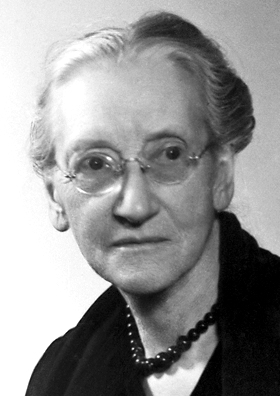
Emily Greene Balch was an American economist, sociologist and pacifist. Balch combined an academic career at Wellesley College with a long-standing interest in social issues such as poverty, child labor, and immigration, as well as settlement work to uplift poor immigrants and reduce juvenile delinquency.

Harvard Kennedy School (HKS), officially the John F. Kennedy School of Government, is the school of public policy and government of Harvard University in Cambridge, Massachusetts. The school offers master's degrees in public policy, public administration, and international development, four doctoral degrees, and various executive education programs. It conducts research in subjects relating to politics, government, international affairs, and economics. As of 2021, HKS had an endowment of $1.7 billion. It is a member of the Association of Professional Schools of International Affairs (APSIA), a global consortium of schools that trains leaders in international affairs.
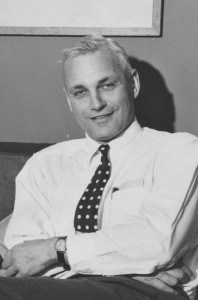
Paul Marlor Sweezy was a Marxist economist, political activist, publisher, and founding editor of the long-running magazine Monthly Review. He is best remembered for his contributions to economic theory as one of the leading Marxian economists of the second half of the 20th century.

The University of Chicago Law School is the law school of the University of Chicago, a private research university in Chicago, Illinois. It employs more than 180 full-time and part-time faculty and hosts more than 600 students in its Juris Doctor program, while also offering the Master of Laws, Master of Studies in Law and Doctor of Juridical Science degrees in law. The law school has the third highest percentage of recent graduates clerking for federal judges after Stanford Law School and Yale Law School.

Nicholas Gregory Mankiw is an American macroeconomist who is currently the Robert M. Beren Professor of Economics at Harvard University. Mankiw is best known in academia for his work on New Keynesian economics.
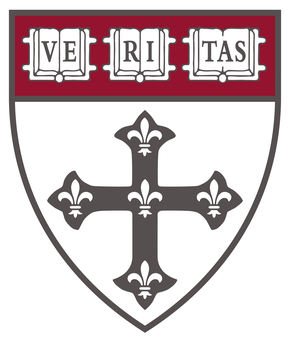
The Harvard T.H. Chan School of Public Health is the public health school of Harvard University, located in the Longwood Medical Area of Boston, Massachusetts. The school grew out of the Harvard-MIT School for Health Officers, the nation's first graduate training program in population health, which was founded in 1913 and then became the Harvard School of Public Health in 1922.

Roland Gerhard Fryer Jr. is an American economist and professor at Harvard University. Following a difficult childhood, Fryer earned an athletic scholarship to the University of Texas at Arlington, but once there chose to concentrate instead on academics. Graduating cum laude in 2+1⁄2 years, he went on to receive a Ph.D. in economics from Pennsylvania State University in 2002 and completed postdoctoral work at the University of Chicago with Gary Becker. He joined the faculty of Harvard University and rapidly rose through the academic ranks; in 2007, at age 30, he became the second-youngest professor, and the youngest African-American, ever to be awarded tenure at Harvard. He has received numerous awards, including a MacArthur Fellowship in 2011 and the John Bates Clark Medal in 2015.
The MIT Department of Economics is a department of the Massachusetts Institute of Technology in Cambridge, Massachusetts.
Dennis Frank Thompson is a political scientist and professor at Harvard University, where he founded the university-wide Center for Ethics and the Professions. Thompson is known for his pioneering work in the fields of both political ethics and democratic theory. According to a recent appraisal, he has become “influential within the world of political theory" by offering “greater concrete political thought than Rawls” and by showing “an atypical grasp, for a political theorist, of the real political world.”
Henry Rosovsky was an American economist and academic administrator who served as Dean of the Faculty of Arts and Sciences of Harvard University. Following a career as an economic historian specializing in East Asia, Rosovsky was named Dean in 1973 by Harvard President Derek Bok. He served from 1973 to 1984 and, again, in 1990 to 1991. He also served as Acting President of Harvard in 1984 and 1987. In 1985, Rosovsky became a member of Harvard’s governing body, the Harvard Corporation, until 1997. He was the first Harvard faculty member to do so in a century.

Esther Duflo Banerjee, FBA is a French–American economist who is the Abdul Latif Jameel Professor of Poverty Alleviation and Development Economics at the Massachusetts Institute of Technology (MIT). She is the co-founder and co-director of the Abdul Latif Jameel Poverty Action Lab (J-PAL), founded in 2003; holds the Poverty and Public Policy chair at the Collège de France since 2022; and is president of the Paris School of Economics since 2024. She shared the 2019 Nobel Memorial Prize in Economic Sciences with Abhijit Banerjee and Michael Kremer, "for their experimental approach to alleviating global poverty".
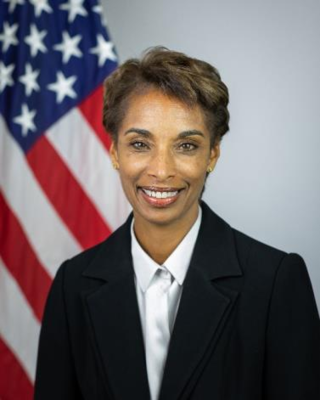
Cecilia Elena Rouse is an American economist who was named as President of the Brookings Institution with an effective date of January 2024. She served as the 30th Chair of the Council of Economic Advisers between 2021 and 2023. She is the first Black American to hold this position. Prior to this, she served as the dean of the Princeton School of Public and International Affairs at Princeton University. Joe Biden nominated Rouse to be Chair of the Council of Economic Advisers in November 2020. Rouse was overwhelmingly confirmed by the Senate on March 2, 2021, by a vote of 95–4. She resigned on March 31, 2023 to return to teaching. On June 28, she was named the 9th President of the Brookings Institution.
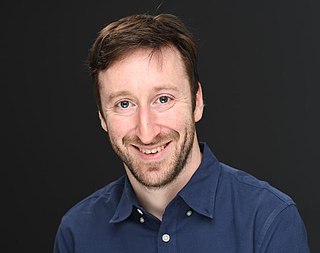
Holden Karnofsky is an American nonprofit executive. He is a co-founder and Director of AI Strategy of the research and grantmaking organization Open Philanthropy. Karnofsky co-founded the charity evaluator GiveWell with Elie Hassenfeld in 2007 and is vice chair of its board of directors.
Alan Michael Garber is an American physician, health economist, and academic administrator. He is the interim president of Harvard University.

Claudine Gay is an American political scientist and academic administrator who was the 30th president of Harvard University, and is the Wilbur A. Cowett Professor of Government and of African and African-American Studies at Harvard. Gay's research addresses American political behavior, including voter turnout and politics of race and identity.

Willene A. Johnson is an American economist who is a former vice president of the Federal Reserve Bank of New York, former U.S. Executive Director of the African Development Bank, and a former president of the National Economic Association.